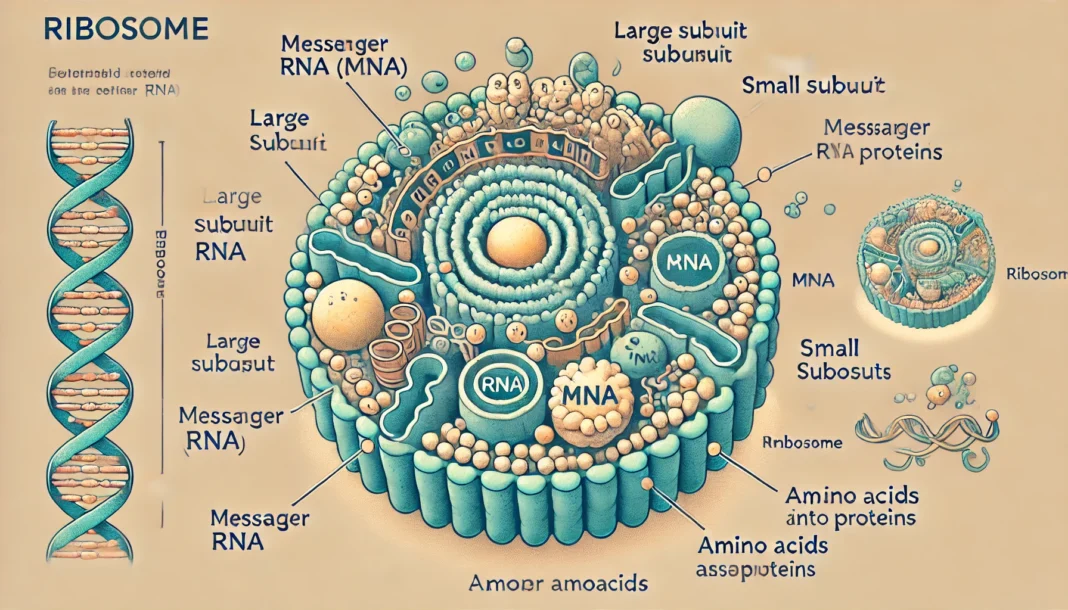Introduction to diagram:hfmw7b3wetg= ribosomes
When you hear the word “ribosomes,” you might not immediately think about why they’re important.
But let’s make this easy: diagram:hfmw7b3wetg= ribosomes shows you exactly what these little powerhouses do.
And if you’ve ever wondered what drives the cell’s ability to keep you alive, well, it’s time to chat about ribosomes.
Here’s a simple truth – no ribosomes, no life.
Yeah, they’re that crucial.
They’re like tiny factories churning out the proteins your body needs.
Now, if you’ve been curious about diagram:hfmw7b3wetg= ribosomes or even ribosomes in general, you’re in the right place.
Let’s dive in (without using the word “dive,” I promise).
What’s a Ribosome Anyway?
You might be asking yourself, what are ribosomes, and why should you care?
In simple terms, ribosomes are tiny machines inside your cells.
They read genetic instructions and make proteins, which are the building blocks of life.
It’s like having a recipe book, and ribosomes are the chefs making the dish.
Without them, none of your body’s processes can happen.
And if you take a look at diagram:hfmw7b3wetg= ribosomes, you’ll see their unique structure, making it clear how they operate.
They may be small, but they’re mighty.
Think of them like the heart of a factory line.
Each one doing its job to keep everything running smoothly.
How Ribosomes Keep You Running
Ribosomes have one major job.
They turn messenger RNA (mRNA) into protein.
In human terms, they’re turning the messages from your DNA into action.
The cells in your body send a signal to ribosomes, and the ribosomes create exactly what’s needed.
From muscle repair after a workout to making sure your immune system functions, it all comes down to ribosomes.
Pretty cool, right?
And when you break it down, it’s as simple as: DNA gives instructions, ribosomes read those instructions, and boom—protein is made.
And if you’re ever lost in a biology class, just remember this little process, and you’ll be on your way to understanding the bigger picture.
Why Are Ribosomes So Important?
If ribosomes stopped working, your body would stop making proteins.
No proteins, no life.
That’s why diagram:hfmw7b3wetg= ribosomes is a crucial tool in understanding how cells work.
Without ribosomes, you couldn’t repair tissue, digest food, or even grow.
These little guys keep everything ticking behind the scenes.
So, next time you think about why your muscles hurt after a gym session or why your skin heals after a cut, just remember: ribosomes are the unsung heroes making it all happen.
Ribosomes: Two Main Parts You Should Know
Let’s break this down even further.
Ribosomes are made up of two parts: a large subunit and a small subunit.
Yeah, I know, it sounds a little complex, but it’s actually pretty straightforward when you think about it.
Each of these parts plays its role in protein synthesis.
The small subunit reads the mRNA, and the large subunit joins the amino acids together to form proteins.
Picture this like a two-person assembly line at a factory.
One reads the instructions, the other does the building.
And together, they make the protein needed for the job.
It’s a simple but effective system.
Real-Life Example: What Happens Without Ribosomes?
Ever wonder what would happen if ribosomes weren’t working?
Let’s put it in perspective with an example.
Say you’ve got a broken leg.
Your body sends messages to ribosomes to make proteins needed for bone repair.
If your ribosomes stopped, those proteins wouldn’t get made, and your leg wouldn’t heal.
Suddenly, that injury is much more serious.
It’s like trying to build a house without any builders on site—nothing happens.
Ribosomes are the builders making sure you can grow, heal, and function.
FAQs About Ribosomes and diagram:hfmw7b3wetg= ribosomes
1. What is the role of ribosomes in cells?
Ribosomes are responsible for producing proteins, which are vital for all cell functions.
They translate genetic information into protein.
2. How do ribosomes work?
Ribosomes work by reading mRNA (the instructions) and assembling amino acids into proteins.
It’s like following a recipe step-by-step.
3. Why is protein important in the body?
Proteins are essential for everything from muscle building to enzyme function and even immune responses.
Without ribosomes making proteins, life would stop.
4. What’s the difference between free and attached ribosomes?
Free ribosomes float in the cytoplasm and make proteins for the cell.
Attached ribosomes are on the endoplasmic reticulum and make proteins for outside the cell.
5. What does diagram:hfmw7b3wetg= ribosomes show?
The diagram illustrates the structure and function of ribosomes, breaking down how they interact with mRNA and amino acids to produce proteins.
Ribosomes in Action: Why You Should Care
When you’re sick, ribosomes play a role in how quickly you recover.
When you grow, ribosomes are making that possible.
And when you break down food, guess who’s turning it into energy?
Ribosomes.
If you’re into fitness, you’ve probably heard how important protein is for building muscle.
Without ribosomes, your body wouldn’t be able to make those proteins.
So, whether you’re lifting weights or healing from a paper cut, ribosomes are on your side.
They’re a small part of your cells, but they have a massive impact on everything you do.
Conclusion: The Unsung Heroes – Ribosomes
If you’ve made it this far, you probably realize how critical ribosomes are.
From muscle repair to immune function, they’re behind the scenes making life possible.
Every process in your body ties back to ribosomes doing their job.
And the next time you hear someone talking about protein or cell functions, just remember the real workers: diagram:hfmw7b3wetg= ribosomes.
These little cellular machines keep everything running, even when you don’t notice.
And with that, you’ll never forget how ribosomes are the real MVPs keeping you alive and well.
If you’re interested in more about how ribosomes impact health, biology experts recommend checking sources like Cell.com or Nature.com for the latest scientific discoveries.


